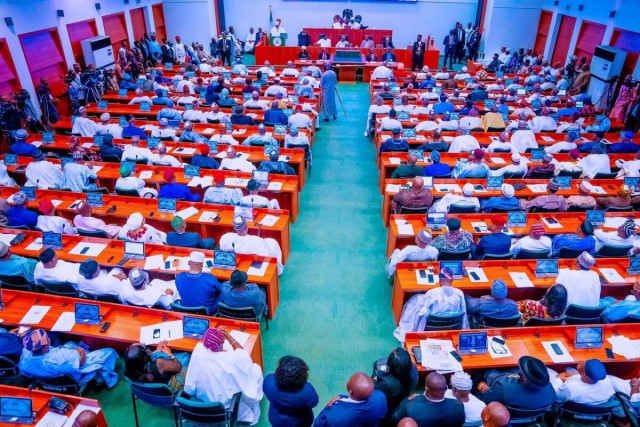The Senate and House of Representatives have delayed their plenary sessions until May 6.
In the meantime, the Nigerian Political Science Association (NPSA) has urged the nation’s political leaders to focus on addressing the country's insecurity rather than diverting their attention towards the 2027 elections.
The two legislative chambers commenced their Easter and Eid-el-Fitr breaks on March 27, planning to reconvene on Tuesday, April 29.
However, a statement from the Clerk to the National Assembly, Kamoru Ogunlana, announced a rescheduling of the resumption by one week.
“I am directed to inform distinguished senators, honourable members, and the public that the two Houses of the National Assembly have extended the resumption of plenary sessions from Tuesday, April 29, 2025, to Tuesday, May 6, 2025,” he stated.
Ogunlana noted that this postponement is intended to enable members of the Senate and House of Representatives to participate in the upcoming Workers’ Day celebrations within their constituencies.
This extension occurs amidst ongoing challenges in the country, including deteriorating security conditions and socio-political unrest in various states.
Bakare has stated that the nation is descending into tyranny, labeling the 10th National Assembly as feeble.
The situation surrounding the Uromi killings underscores the urgent need to ensure Nigeria's safety. Abbas emphasizes that the National Assembly is the most underfunded government body.
According to a distinguished group of scholars, the practice of exclusive politics, which continues to alienate a significant portion of the population, contributes to the increasing insecurity in Nigeria.
NPSA President, Prof. Hassan Saliu, in an official statement titled: 'The Alarming State of Insecurity in Nigeria', pointed out that Nigerians residing in areas such as Benue, Borno, Plateau, and others have been living in fear in recent weeks.
Saliu expressed his disappointment, noting that the previous sentiment among government officials was that the country was making progress in reducing insecurity, whereas the situation is, in fact, deteriorating.
He acknowledged that factors such as ungoverned areas, religious extremism, poverty, foreign conspiracies, divisive political practices, and inter-group tensions exacerbate the insecurity, but, he asserted that the primary cause is the exclusionary politics that neglect the general populace.
He stressed that instead of dedicating their efforts to combating the rising tide of insecurity, the political class appears to be preoccupied with the upcoming 2027 elections.
Saliu concluded that if the Federal Government had been genuinely committed to tackling insecurity, its initiatives over the past two decades would have produced favorable outcomes.
He emphasized that the continuous insecurity situation has significant implications, notably that no foreign investor would risk their capital in an environment where insecurity has become the norm.




















